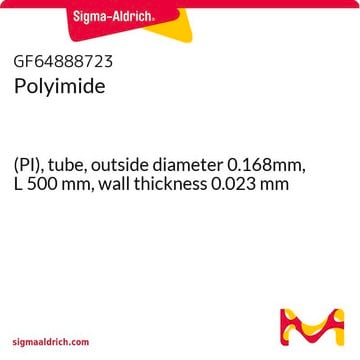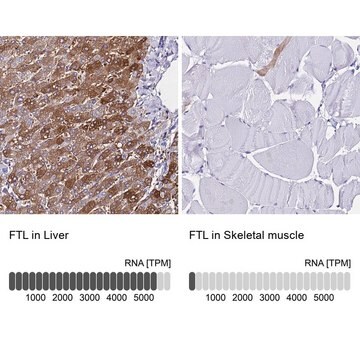GF63273731
Terbium
rod, 100mm, diameter 6.35mm, cast, 99%
Synonym(s):
Terbium, TB007910
Sign Into View Organizational & Contract Pricing
All Photos(2)
About This Item
Empirical Formula (Hill Notation):
Tb
CAS Number:
Molecular Weight:
158.93
MDL number:
UNSPSC Code:
12141614
PubChem Substance ID:
NACRES:
NA.23
Recommended Products
Assay
99%
form
rod
manufacturer/tradename
Goodfellow 632-737-31
resistivity
116 μΩ-cm, 20°C
L × diam.
100 mm × 6.35 mm
bp
3230 °C (lit.)
mp
1356 °C (lit.)
density
8.234 g/mL at 25 °C (lit.)
SMILES string
[Tb]
InChI
1S/Tb
InChI key
GZCRRIHWUXGPOV-UHFFFAOYSA-N
Looking for similar products? Visit Product Comparison Guide
General description
For updated SDS information please visit www.goodfellow.com.
Legal Information
Product of Goodfellow
Certificates of Analysis (COA)
Search for Certificates of Analysis (COA) by entering the products Lot/Batch Number. Lot and Batch Numbers can be found on a product’s label following the words ‘Lot’ or ‘Batch’.
Already Own This Product?
Find documentation for the products that you have recently purchased in the Document Library.
Dinari A Harris et al.
Current protocols in nucleic acid chemistry, Chapter 6, Unit 6-Unit 6 (2008-04-23)
The function of an RNA molecule is determined by its overall secondary and tertiary structure. The tertiary structure is facilitated and stabilized by the interaction with metal ions. The current chapter offers a detailed protocol on the use of the
Lei Rao et al.
International journal of food microbiology, 205, 73-80 (2015-04-19)
The objective of this study was to investigate the inactivation of the Bacillus subtilis spores by high pressure CO2 combined with high temperature (HPCD+HT) and to analyze the clumping effect of the spores on their HPCD+HT resistance. The spores of
Kamal P Mani et al.
Spectrochimica acta. Part A, Molecular and biomolecular spectroscopy, 148, 412-419 (2015-04-29)
Terbium molybdate nanophosphors were synthesized through a facile sol-gel route. The structure of the phosphors was characterized by X-ray diffraction, Raman spectra and Fourier transform infrared spectroscopy analysis. The X-ray diffraction studies revealed that the structure of the nanophosphor gradually
Zhi Shi et al.
Cancer research, 75(1), 147-158 (2014-11-02)
Cables1 is a candidate tumor suppressor that negatively regulates cell growth by inhibiting cyclin-dependent kinases. Cables1 expression is lost frequently in human cancer but little is known about its regulation. Here, we report that Cables1 levels are controlled by a
Cédric Brulé et al.
FASEB journal : official publication of the Federation of American Societies for Experimental Biology, 28(12), 5148-5162 (2014-09-04)
Biased agonism by G-protein-coupled receptor ligands has opened up strategies for targeted physiological or therapeutic actions. We hypothesized that urotensin II (UII)-derived peptides displayed unexpected physiological effects because of such biased signaling on the UII human urotensin (hUT) receptor. We
Our team of scientists has experience in all areas of research including Life Science, Material Science, Chemical Synthesis, Chromatography, Analytical and many others.
Contact Technical Service








